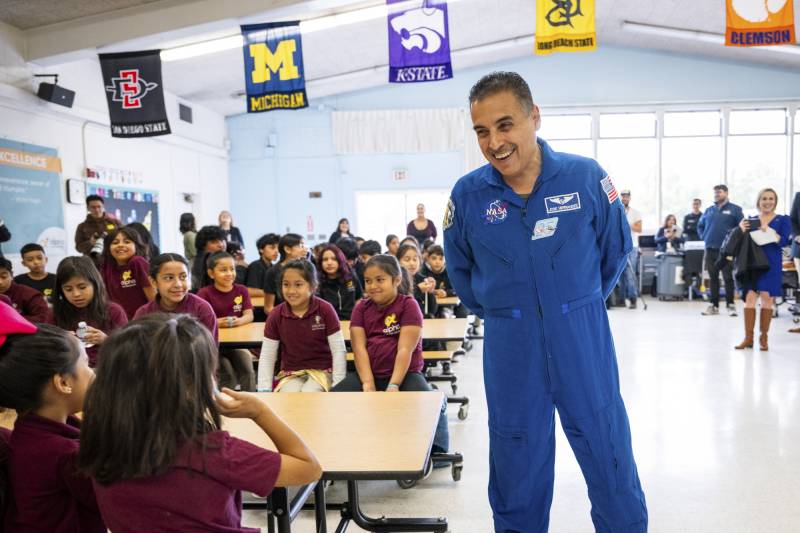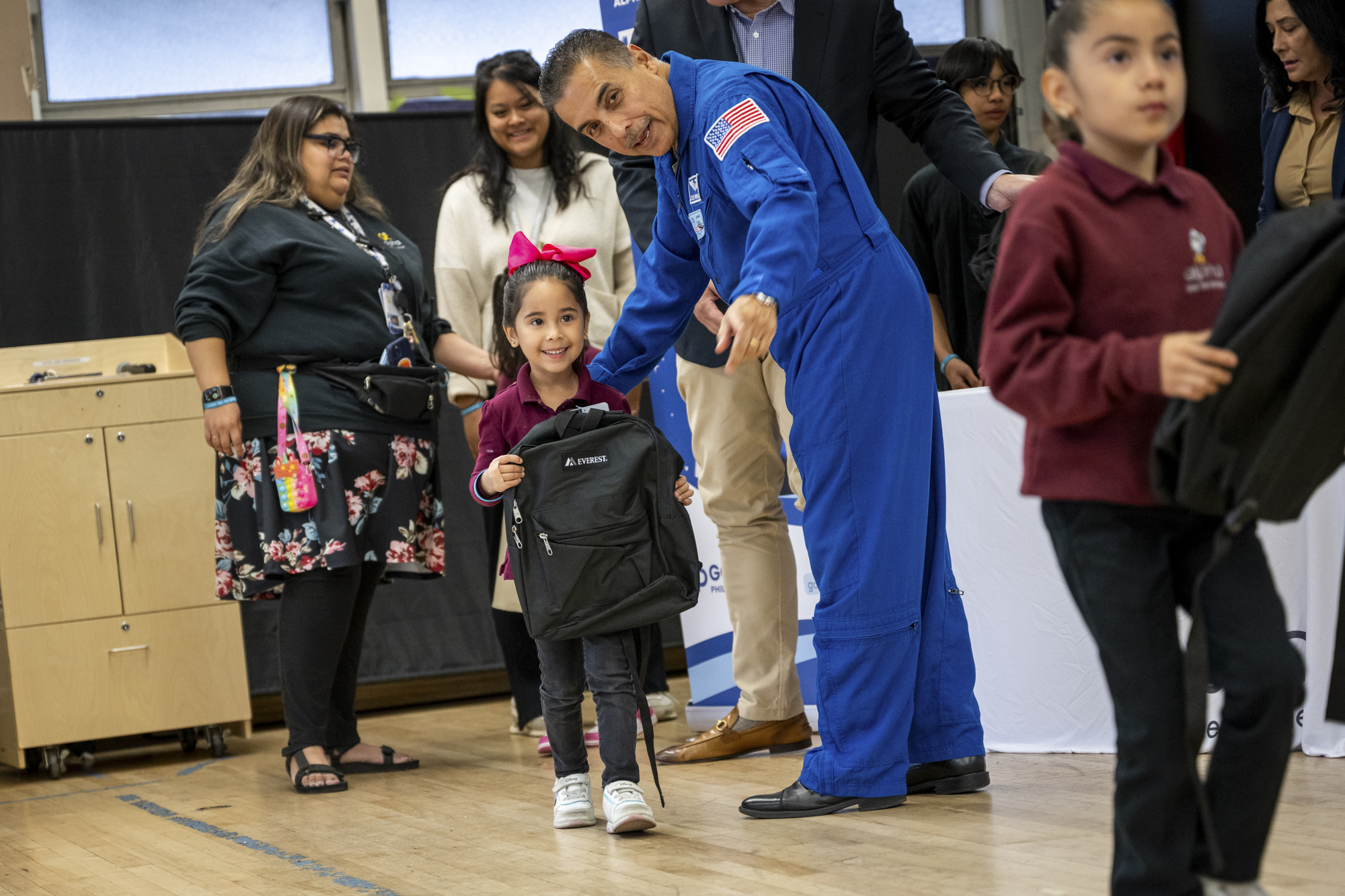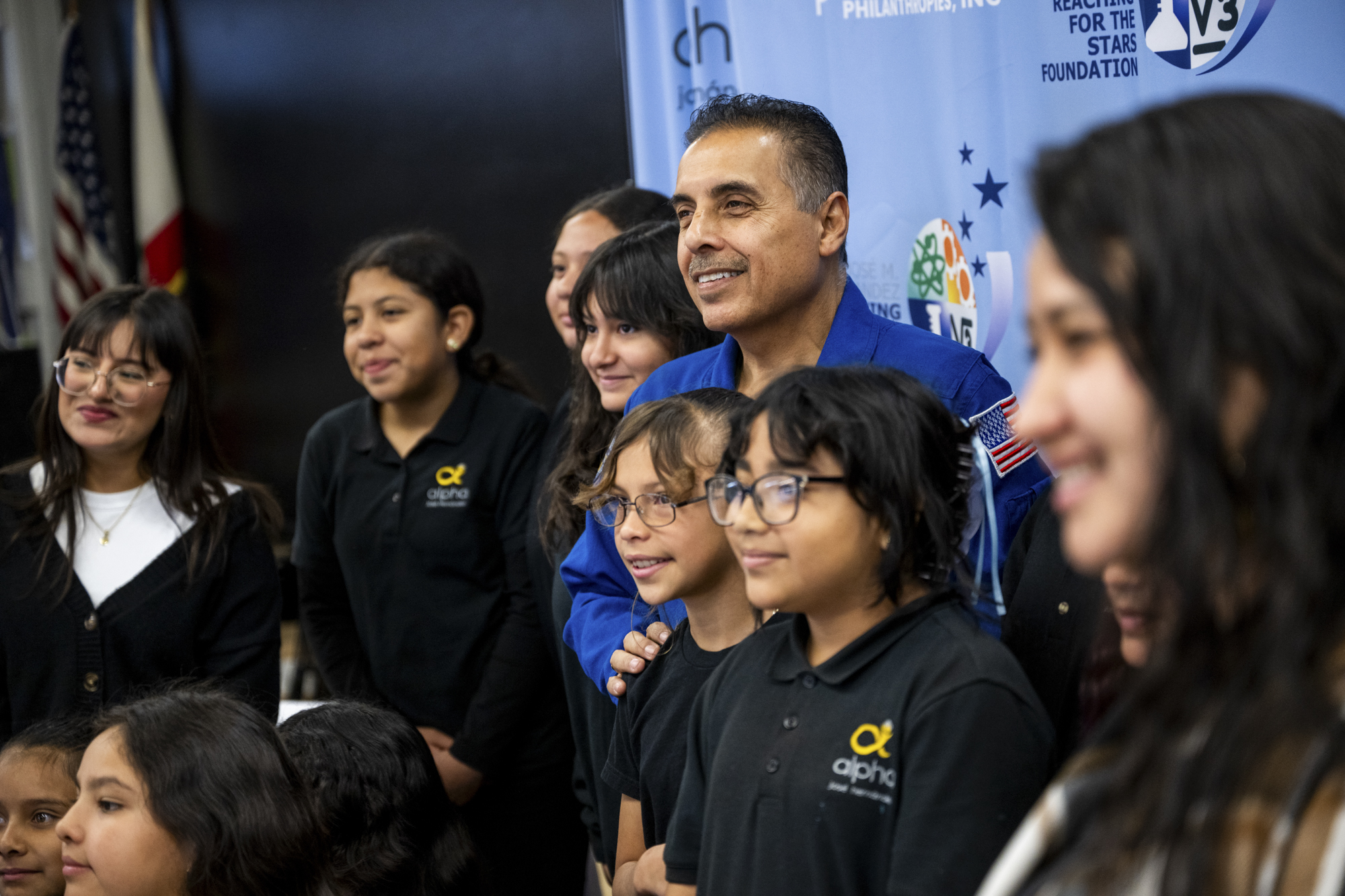On a sunny Friday morning in San José, students and teachers at Alpha: José Hernández School stream into their cafeteria. With smiles everywhere, the excitement is palpable: Students are about to meet the person that their school — a TK–8 public charter school in the city’s Eastside — is named for.
A few minutes later, wearing his blue NASA uniform, astronaut and engineer José Hernández walks in — immediately greeted by cheers. He walks over to a lunch table with students from all different grades.
“What grade are you guys in?” he asks. “Third!” “First!” “Fourth!” students shout back all at once.
“Who’s in fifth?” Hernández asks, and several hands shoot up.
“Ah, you know that’s when I decided to be an astronaut,” he replies.

‘Yo pienso que lo puedes lograr’
In 2009, Hernández was a crew member on the STS-128 space shuttle Discovery mission, which traveled to the International Space Station (ISS.) The mission, which lasted almost two weeks and covered a total of 5.7 million miles, brought crucial maintenance supplies and scientific equipment to the ISS.
Hernández’s journey to becoming an astronaut was not easy. He was born in the small agricultural community of French Camp in San Joaquin County to a family of Mexican migrant farmworkers — and during his childhood, his family traveled back and forth between California and Michoacan, Mexico, to follow the different growing seasons.
During the school year, Hernández worked in the fields alongside his parents, picking produce on the weekends and seven days a week during the summer. But his parents always emphasized the importance of education to better oneself, he told the students assembled at the school named after him.

“When I told [my father] that I wanted to be an astronaut, he did two things,” Hernández said. “The first thing he did was empower my dream. He said to me, ‘Yo pienso que lo puedes lograr’ — ‘I know you can do it.’”
The second thing Hernández’s father did, he said, was to give him tangible advice on how to achieve that dream. “He told me, ‘You know that effort you put out picking fruits and vegetables Saturdays and Sundays, seven days during the summer?’ … and he pointed to my books on the kitchen table, and he said, ‘You put that effort there.’”


